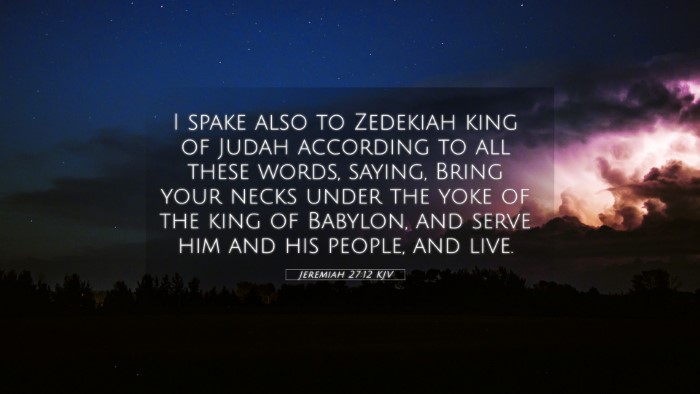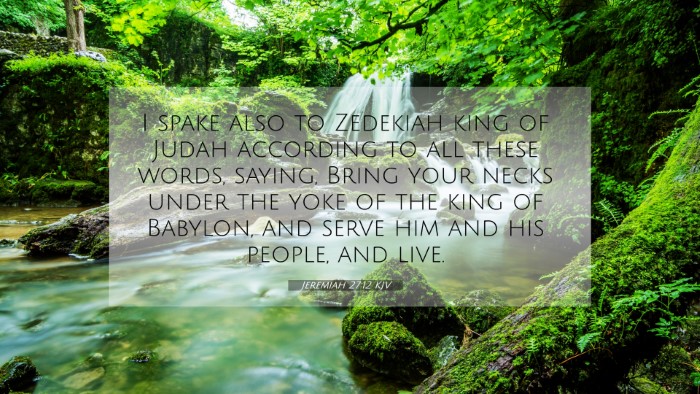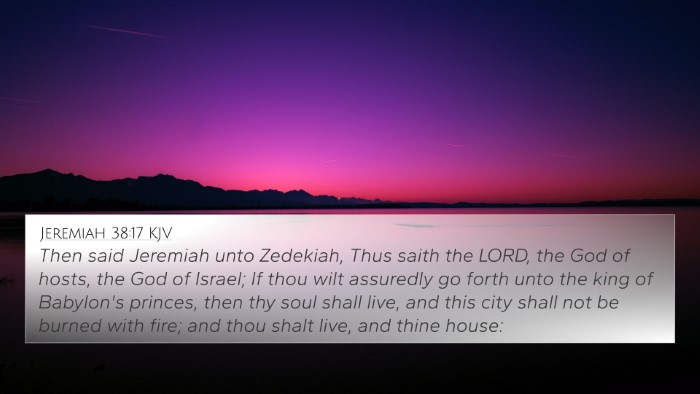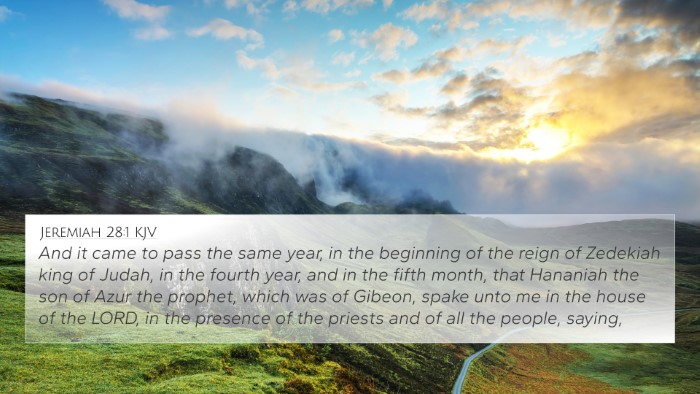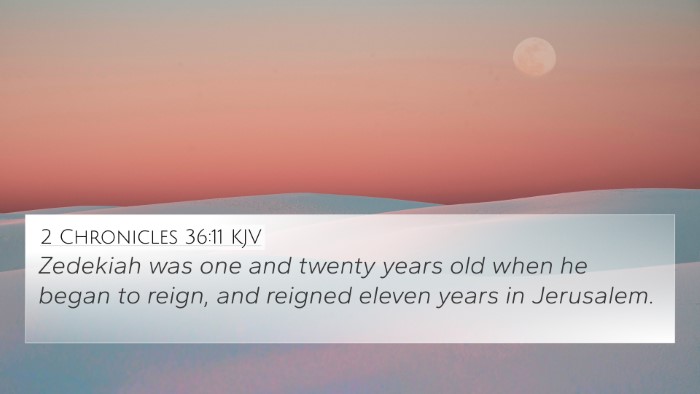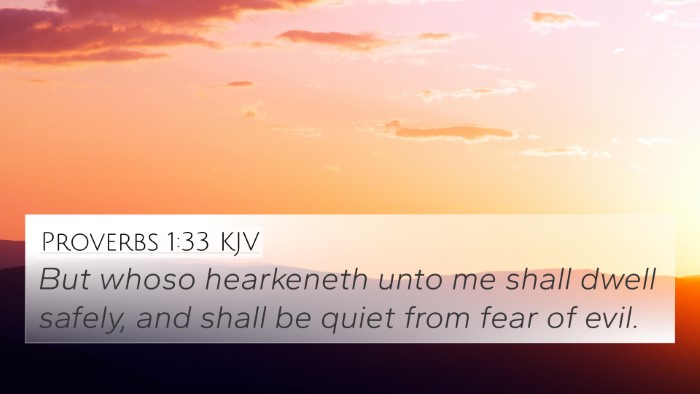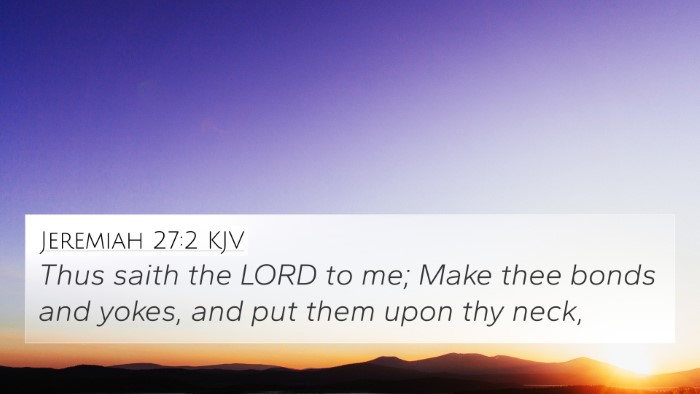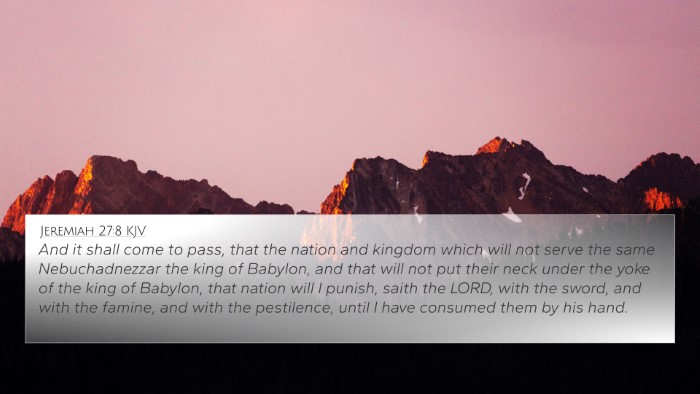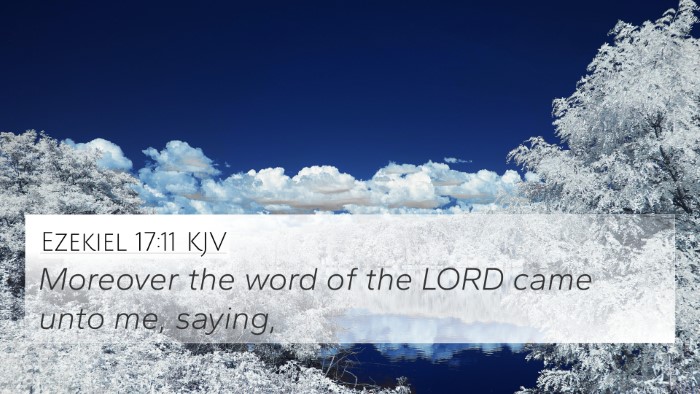Understanding Jeremiah 27:12
Jeremiah 27:12 reads: "I spoke also to Zedekiah king of Judah according to all these words, saying, 'Bring your necks under the yoke of the king of Babylon, and serve him and his people, and live.'"
Contextual Significance
This verse occurs within a larger prophetic narrative where God, through Jeremiah, urges the people of Judah to submit to Nebuchadnezzar, king of Babylon. The Babylonians were instruments of God's judgment against Israel for their disobedience.
The call for submission emphasizes a divine strategy aimed at preserving the lives of the people through compliance with God’s decree. This presents a clear message of surrender as a means of survival in the face of impending conquest.
Thematic Analysis
The themes presented in Jeremiah 27:12 relate closely to concepts of authority, divine judgment, and human response to prophecy. Both Matthew Henry and Adam Clarke highlight that God’s word through Jeremiah not only conveys the message of impending calamity but also offers a pathway toward survival through humble submission.
-
Submission to Authority: This verse illustrates the biblical principle of honoring governing authorities, as emphasized in Romans 13:1-2, where believers are instructed to submit to governing powers.
-
Divine Judgment: The verse reflects a broader theme of God's judgment found in other prophetic scriptures, such as Ezekiel 21:25-27, indicating the severe consequences of rebellion against God.
-
Hope for Preservation: The promise of life with submission signifies hope, echoing sentiments found in Proverbs 16:4, which states that the Lord has made everything for its purpose, including the wicked for the day of trouble.
Commentary Insights
Matthew Henry expounds that the message to Zedekiah embodies a stern warning and an act of mercy. Compliance might appear as a defeat, but it is, in fact, a Divine strategy to achieve ultimate liberation.
Albert Barnes suggests that Zedekiah’s refusal to heed Jeremiah’s call reflects the stubbornness of the human heart towards God's will. This rebellion leads to dire consequences, reinforcing God’s sovereignty in matters of national governance.
Adam Clarke elaborates on the necessity of understanding the 'yoke' metaphor, depicting submission not merely as oppression but as a collective preservation of life. Clarke emphasizes the representational act of voluntary submission to God’s appointed ruler as a pathway to restoration.
Related Bible Verses
Several verses interconnect with Jeremiah 27:12, offering a deeper understanding of its themes through a cross-referencing lens:
- Isaiah 39:5-7 - Prophecies regarding Babylon's impending conquest.
- Daniel 1:1 - The historical account of captivity under Babylon.
- Ezekiel 17:13-15 - The theme of allegiance to Babylon as an obligation.
- Romans 13:1-2 - The New Testament exhortation for obedience to civil authorities.
- Jeremiah 29:4-7 - Instructions to seek the welfare of the city and reside peaceably.
- Deuteronomy 28:47-48 - The consequences of disobedience leading to servitude.
- 1 Peter 2:13-17 - A call to submit to every human authority as an act of obedience to God.
Tools for Cross-Referencing
Utilizing various resources can enhance your understanding of biblical texts through effective cross-referencing. Here are some suggested tools:
- Bible Concordance - An index for locating scripture passages based on keywords.
- Bible Cross-Reference Guide - A systematic approach to explore connections between various verses.
- Cross-Reference Bible Study Methods - Strategies to deeply explore thematic relations in scripture.
Conclusion
Jeremiah 27:12 serves as a poignant reminder of the importance of recognizing God's sovereign plans even in challenging circumstances. It invites believers to reflect on the nature of servitude, authority, and the divine promise of preservation amidst judgment. Through effective cross-referencing, one can find a wealth of connections that enrich understanding of this significant biblical passage.

